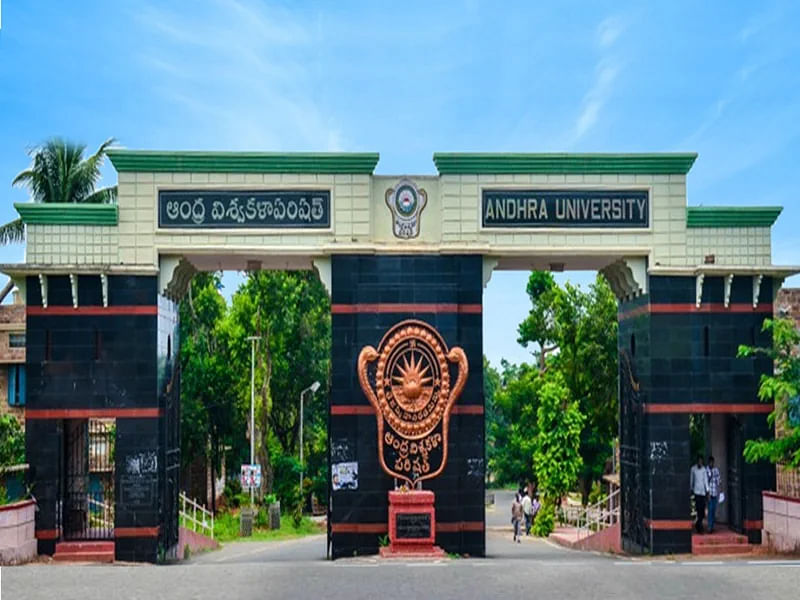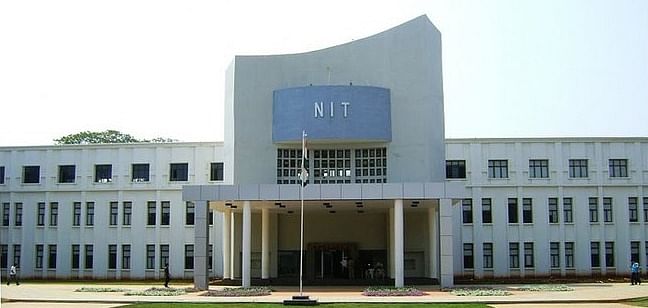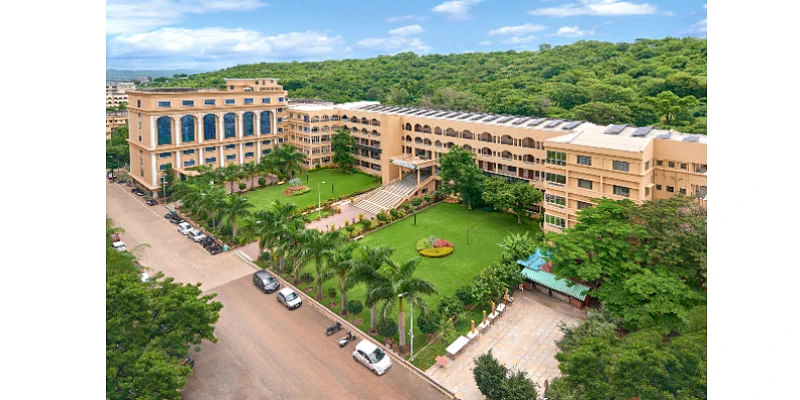M.Sc Organic Chemistry Syllabus and Subjects

The M.Sc Organic Chemistry syllabus can be divided into four semesters under two years with topics such as Organic Spectroscopy and Synthesis, Synthetic Organic Chemistry, Reaction Mechanism, Stereo-Chemistry, etc. After graduation, there are many job opportunities for candidates to pursue such as Organic Chemist, Development Scientist, and Toxicologist.
Table of Contents
- Semester Wise MSc Organic Syllabus
- MSc Organic Chemistry Subjects
- M.Sc Organic Chemistry Reference Books
Semester-wise MSc Organic Chemistry Syllabus
The MSc Organic Chemistry syllabus focuses on several special topics which involve both organic and inorganic chemistry along with practicals. Electives are offered only from the second year of the course. In short, the table below highlights the MSc Organic Chemistry Syllabus following the semester-wise system.
MSc Organic Chemistry First Year Syllabus
In the table given below is MSc Organic Chemistry Syllabus for First Year:
|
Semester I |
Semester II |
|
Organic Chemistry - I |
Organic Chemistry - II |
|
Physical Chemistry - I |
Physical Chemistry - II |
|
Inorganic Chemistry - I |
Inorganic Chemistry - II |
|
Stereochemistry & Reaction mechanism |
Reagents in Organic Synthesis |
MSc Organic Chemistry First year Practical
In the list given below are MSc Organic Chemistry practicals for the first year:
- Organic Chemistry Practical I & II
- Inorganic Chemistry Practical I & II
- Physical Chemistry Practical I & II
MSc Organic Chemistry Second Year Syllabus
In the table given below is MSc Organic Chemistry Syllabus for Second Year:
|
Semester III |
Semester IV |
|
Synthetic Organic Chemistry |
Medicinal Chemistry (Elective) |
|
Bio-organic Chemistry |
Organic Chemistry Practical |
|
Green chemistry, molecular rearrangements and heterocyclic chemistry |
Organometallic compounds |
|
Experimental Methods in Chemistry / Electroanalytical Techniques (Elective) |
Dissertation |
| Organic Chemistry – III | - |
MSc Organic Chemistry Second year Practical
In the list given below are MSc Organic Chemistry practicals for the second year:
- Organic Chemistry Practical III
- Organic Chemistry Practical IV
- Organic Chemistry Practical V
- Organic Chemistry Practical VI
MSc Organic Chemistry Subjects
The MSc Organic Chemistry subjects are divided into three categories: core subjects, which cover the advanced elements of organic compounds and techniques, electives are skill-based courses which can be either discipline related or based on soft skills and lab subjects. Give below are the subjects for MSc Organic Chemistry:
MSc Organic Chemistry Core Subjects
In the list given below are the core subjects for MSc Organic Chemistry:
- Organic Chemistry
- Inorganic Chemistry
- Physical Chemistry
- Bio-organic Chemistry
- Spectroscopy
- Organic Chemistry Practical
- Organometallic compounds
- Reagents in Organic Synthesis
- Green chemistry, molecular rearrangements and heterocyclic chemistry
MSc Organic Chemistry Elective Subjects
In the list given below are the elective subjects for MSc Organic Chemistry:
- Applications of synthetic products
- Natural and synthetic products
- Medicinal Chemistry
- Experimental Methods in Chemistry / Electroanalytical Techniques
MSc Organic Chemistry Lab Subjects
In the list given below are the lab subjects for MSc Organic Chemistry:
- Organic Chemistry Practical I & II
- Inorganic Chemistry Practical I & II
- Physical Chemistry Practical I & II
- Organic Chemistry Practical III
- Organic Chemistry Practical IV
- Organic Chemistry Practical V
- Organic Chemistry Practical VI
MSc Organic Chemistry Subjects In Detail
The MSc Organic Chemistry Subjects focus mainly on practical techniques of organic compounds along with various theoretical topics which are listed in the table given below:
| MSc Organic Chemistry Subjects | Topics |
| Organic Chemistry- I | Stereochemistry, ORD and CD, Reaction intermediates and aliphatic electrophilic substitution, Effect of structure on reactivity. |
| Inorganic Chemistry- I | Structure and Bonding, Boron compounds and Clusters, Solid State, Nuclear Chemistry–I, Nuclear Chemistry – II. |
| Physical Chemistry- I | Classical Thermodynamics, Statistical and Irreversible Thermodynamics, Chemical Kinetics – I, Quantum Chemistry – I. |
| Organic Chemistry- II | Aromaticity, Elimination and Free radicals, Aromatic electrophilic and nucleophilic substitution, Organic Photochemistry. |
| Inorganic Chemistry- II | Theories of coordination compounds, Stability and Stereochemical Aspects, Reaction Mechanism of transition metal complexes. |
| Physical Chemistry- II | Quantum Chemistry – II, Group Theory – II, Surface Chemistry and Catalysis, Electrochemistry – I, Electrochemistry – II. |
M.Sc Organic Chemistry Course Structure
The M.Sc Organic Chemistry syllabus is designed in a way that the course mainly includes elements of organic chemistry. The course structure involves various aspects which are listed below:
- Practical Subjects
- Core Subjects
- Elective Subjects
M.Sc Organic Chemistry Teaching Methodology and Techniques
M.Sc Organic Chemistry syllabus teaching methodology is designed based on requirements and helps with getting the most exposure regarding the field. The prime focus is given to lab practicals through action-based- learning. In the list below are some of the teaching methodologies for MSc Organic Chemistry:
- Assignments/Viva-voce
- Following course module books
- Research work
- Internships
M.Sc Organic Chemistry Projects
M.Sc Organic Chemistry syllabus has term projects at the end of the year which account for major credits that are required for passing the course. The projects enable students to discourse all they have learned throughout the year. Mentioned below are some of the project topics for MSc Organic Chemistry.
- The Bleaching Of Palm Oil Using Activated Charcoal
- Modification Of Surface, Physical And Chemical Properties Of Activated Carbons For Water Purification
- Production Of Alkali Using Local Raw Material (Palm Inflorescence)
- Synthesis Of Activated Carbon From Enugu Coal
- Desulphurisation Kerosene
M.Sc Organic Chemistry Reference Books
To get deep or in-depth knowledge, there are certain books published by -authors, who have opened up about their thought processes, thus helping in being more skilled and knowledgeable about Chemistry and formulas which are a major part of the M.Sc Organic Chemistry Syllabus.
|
Name |
Author |
|
Enzyme Catalysis in Organic Synthesis (Vol I-III) |
K Drauz and H Waldmann |
|
Biotransformations in Organic Chemistry |
Kurt Faber |
|
Pharmaceutical Organic Chemistry |
Bhasin |
|
Name Reactions |
Jie Jack Li |
|
Organic Synthesis: Strategy and Control |
Paul Wyatt |
Top M.Sc Organic Chemistry Colleges
Top Science Entrance Exams
M.Sc Organic Chemistry Fee Structure
FAQs on M.Sc Organic Chemistry Syllabus and Subjects
Q: What are the subjects in MSc organic chemistry?
Q: Is MSc chemistry better than MSc organic chemistry?
Q: Who is eligible for MSc in organic chemistry?
Q: Is organic chemistry in demand?























